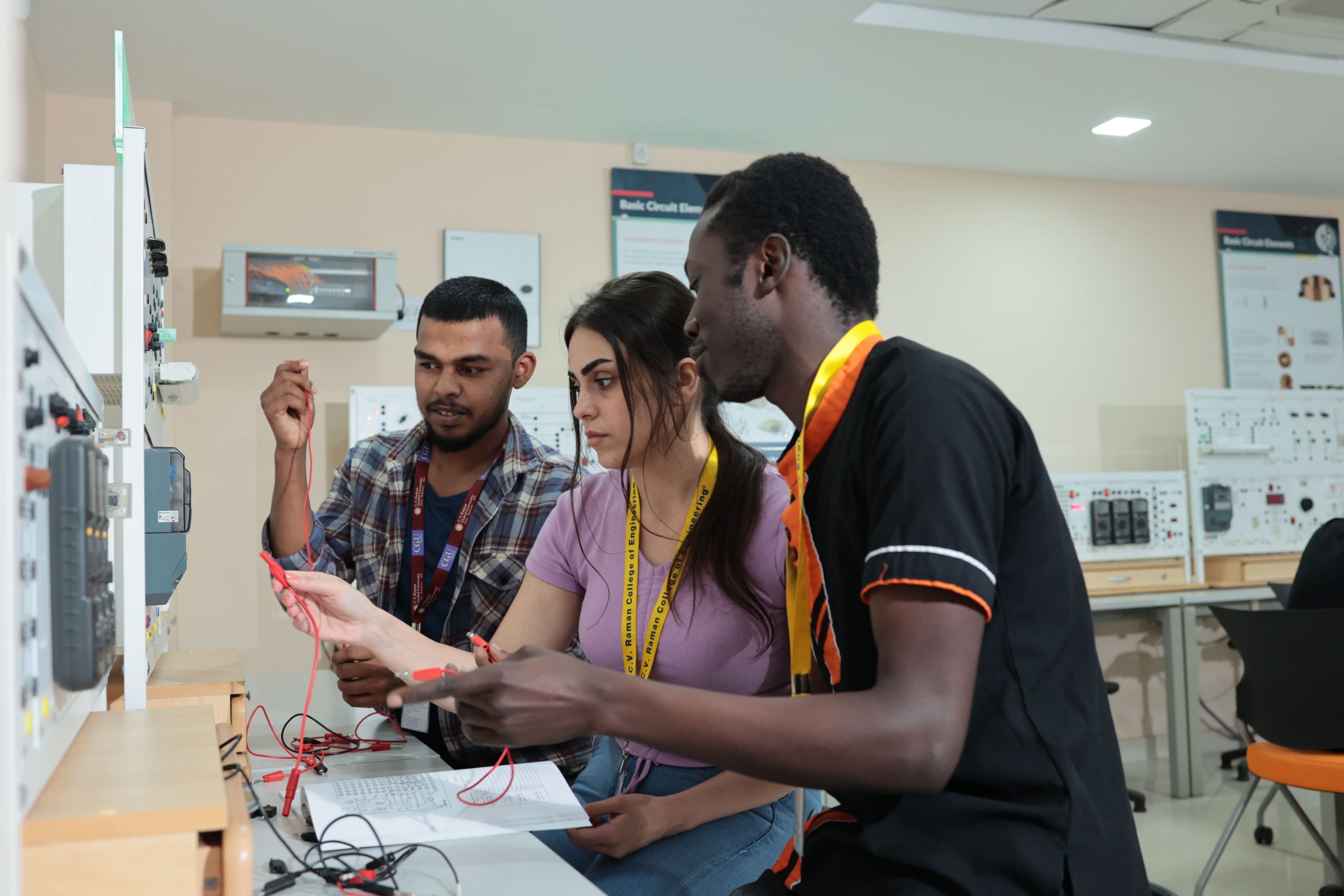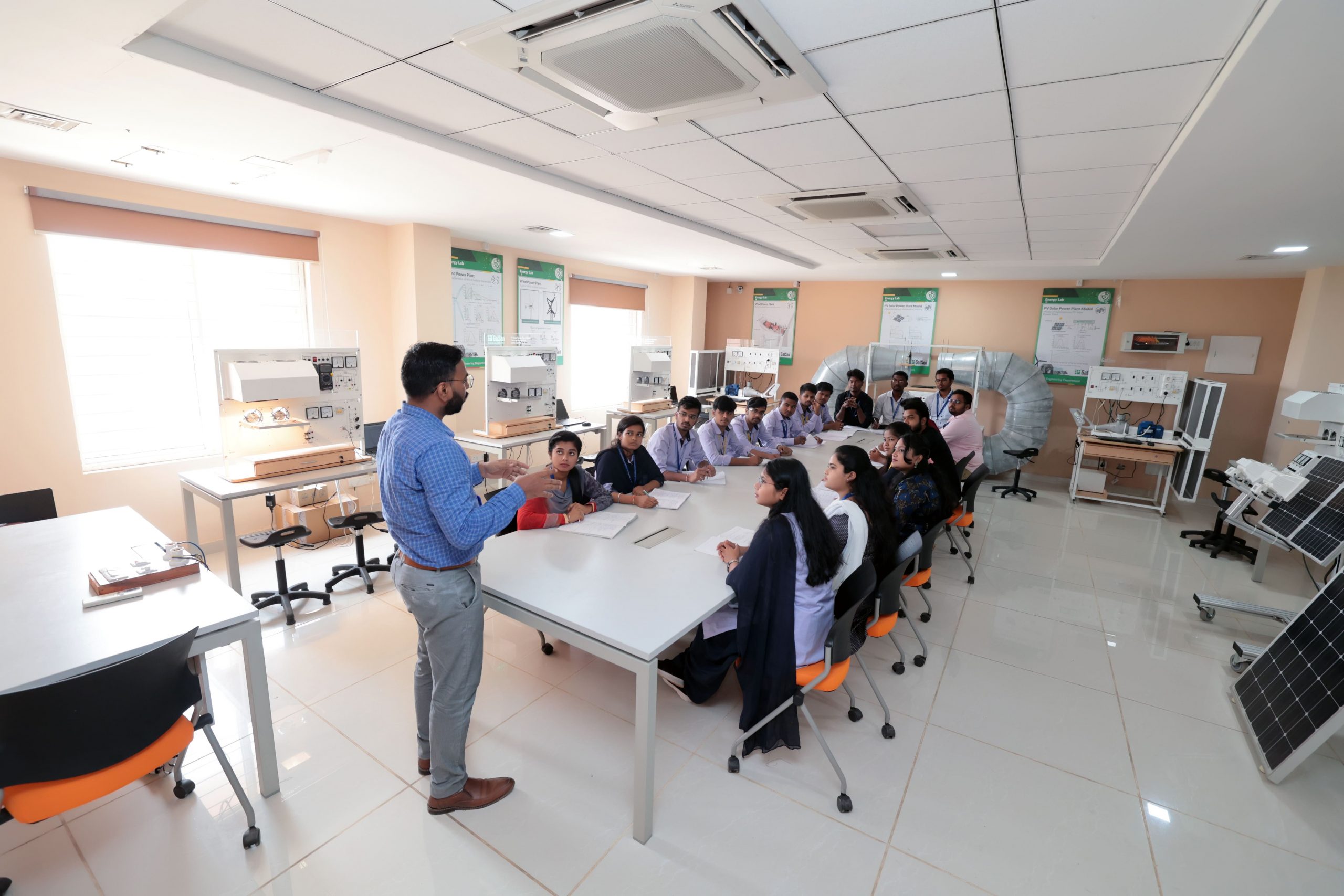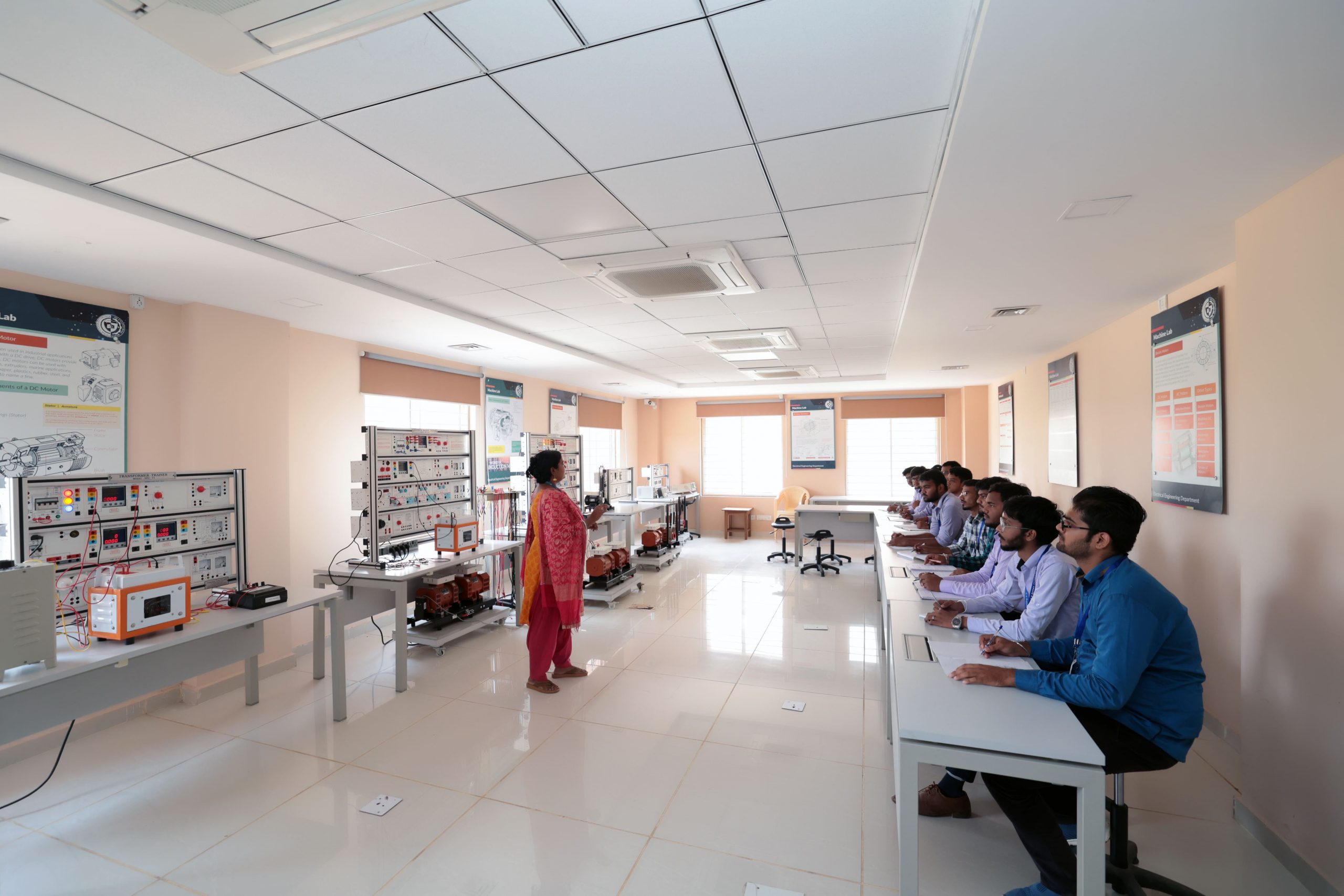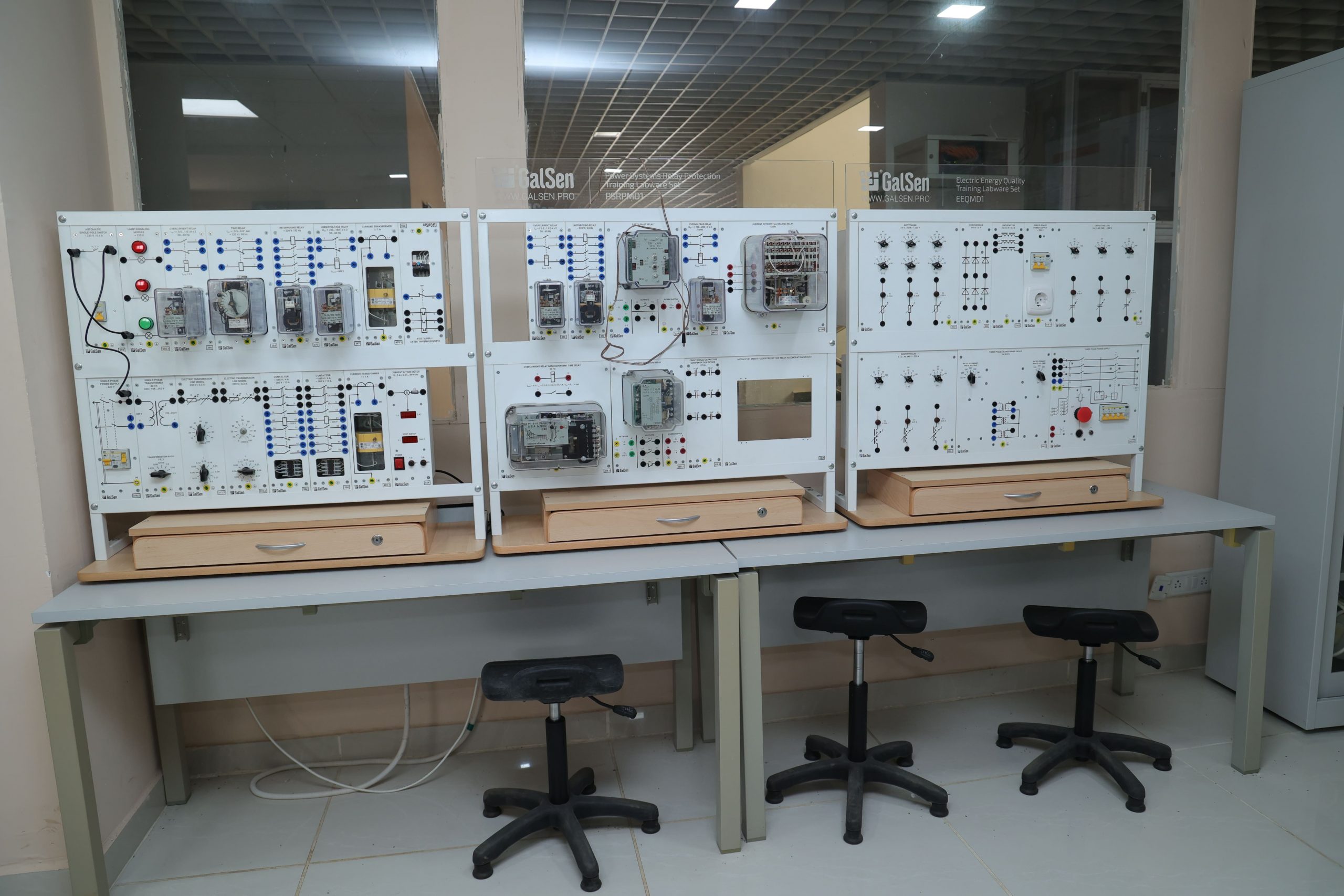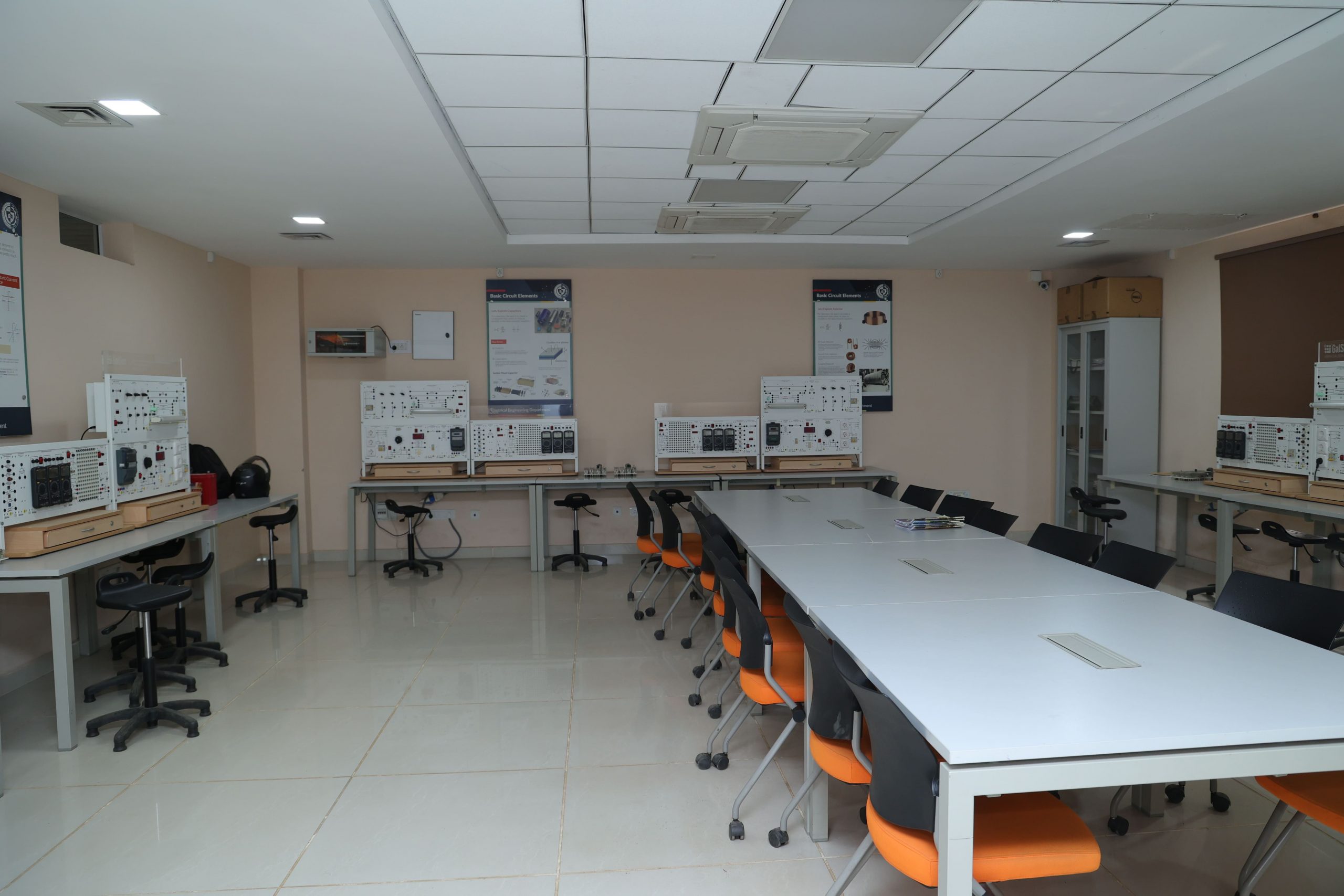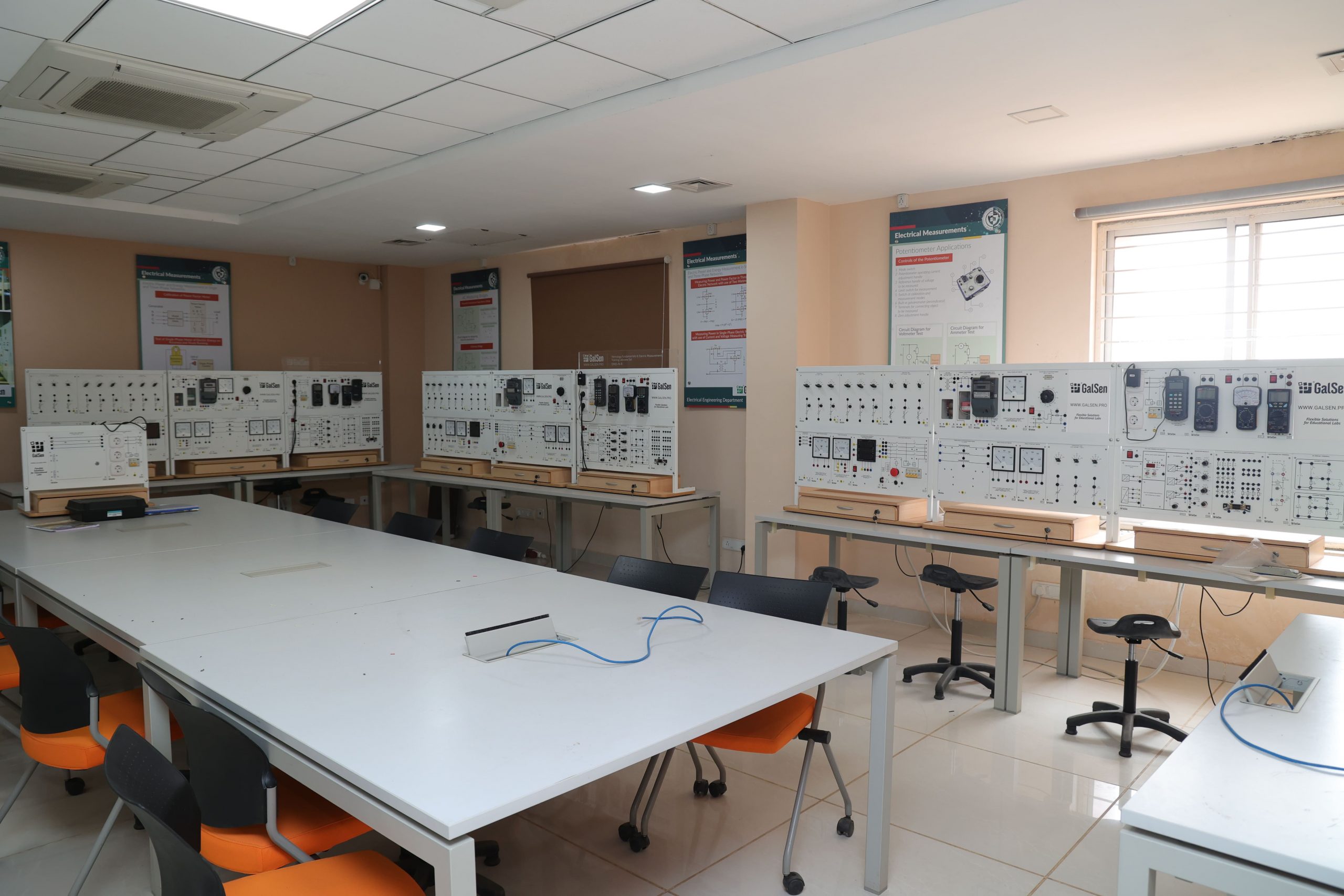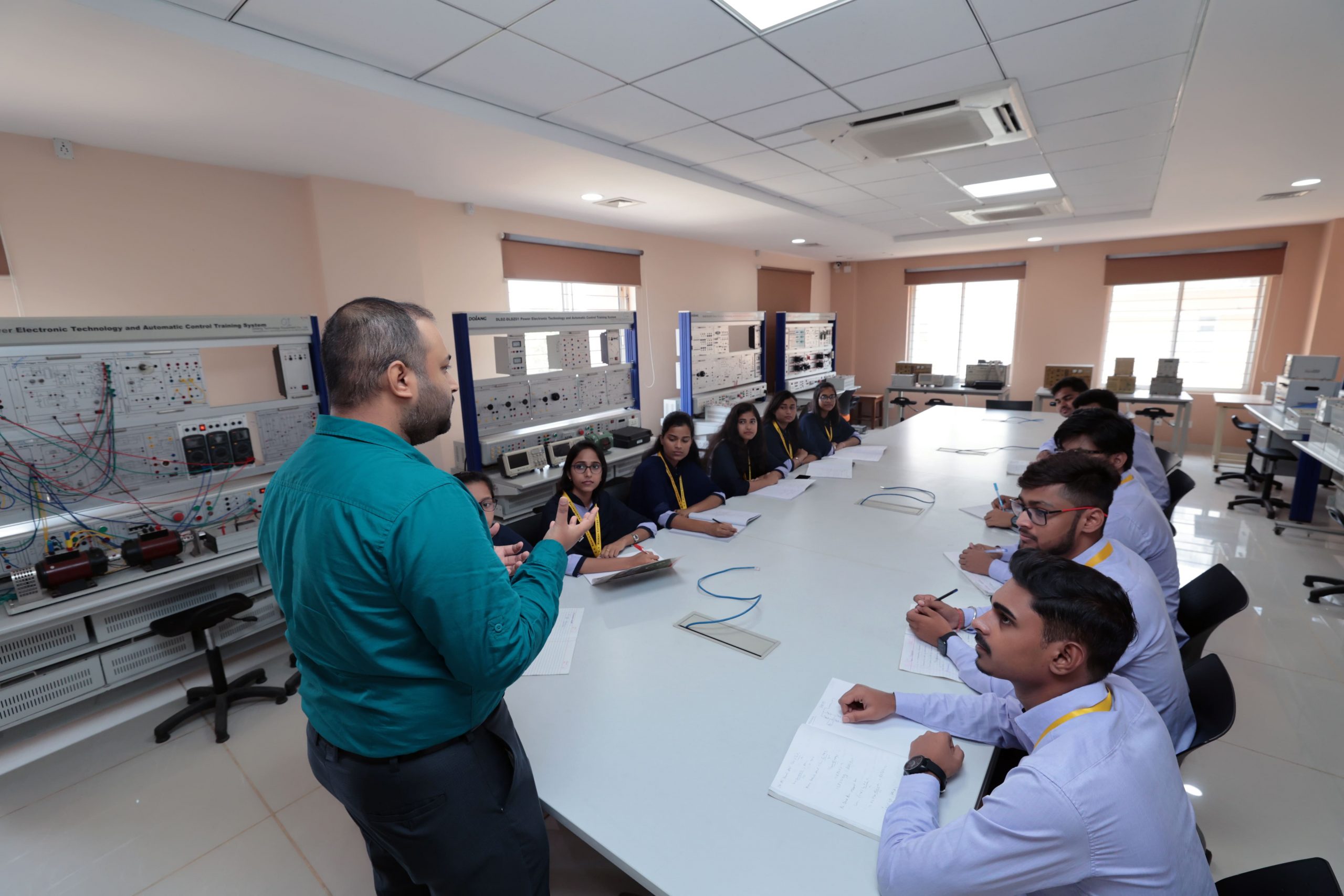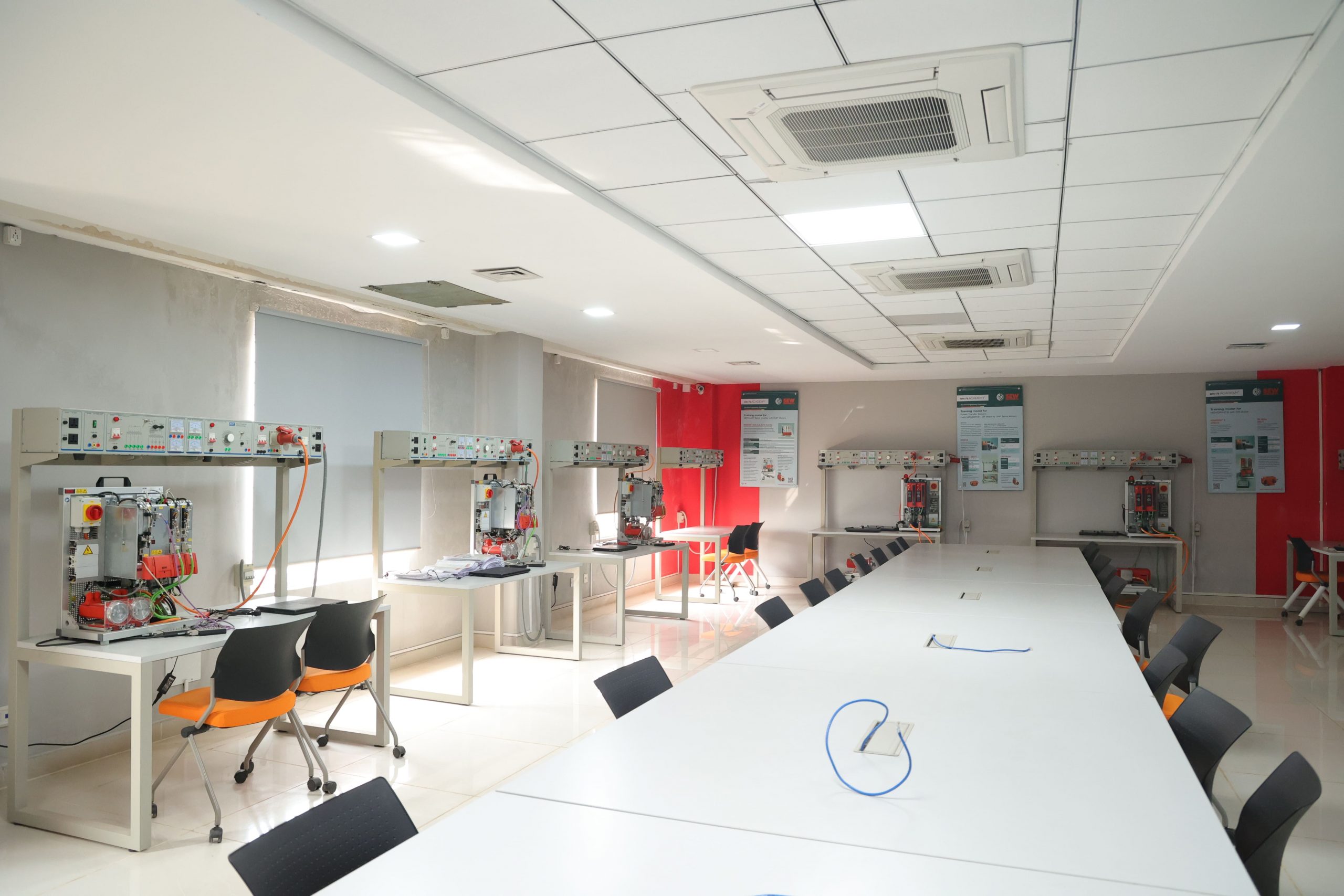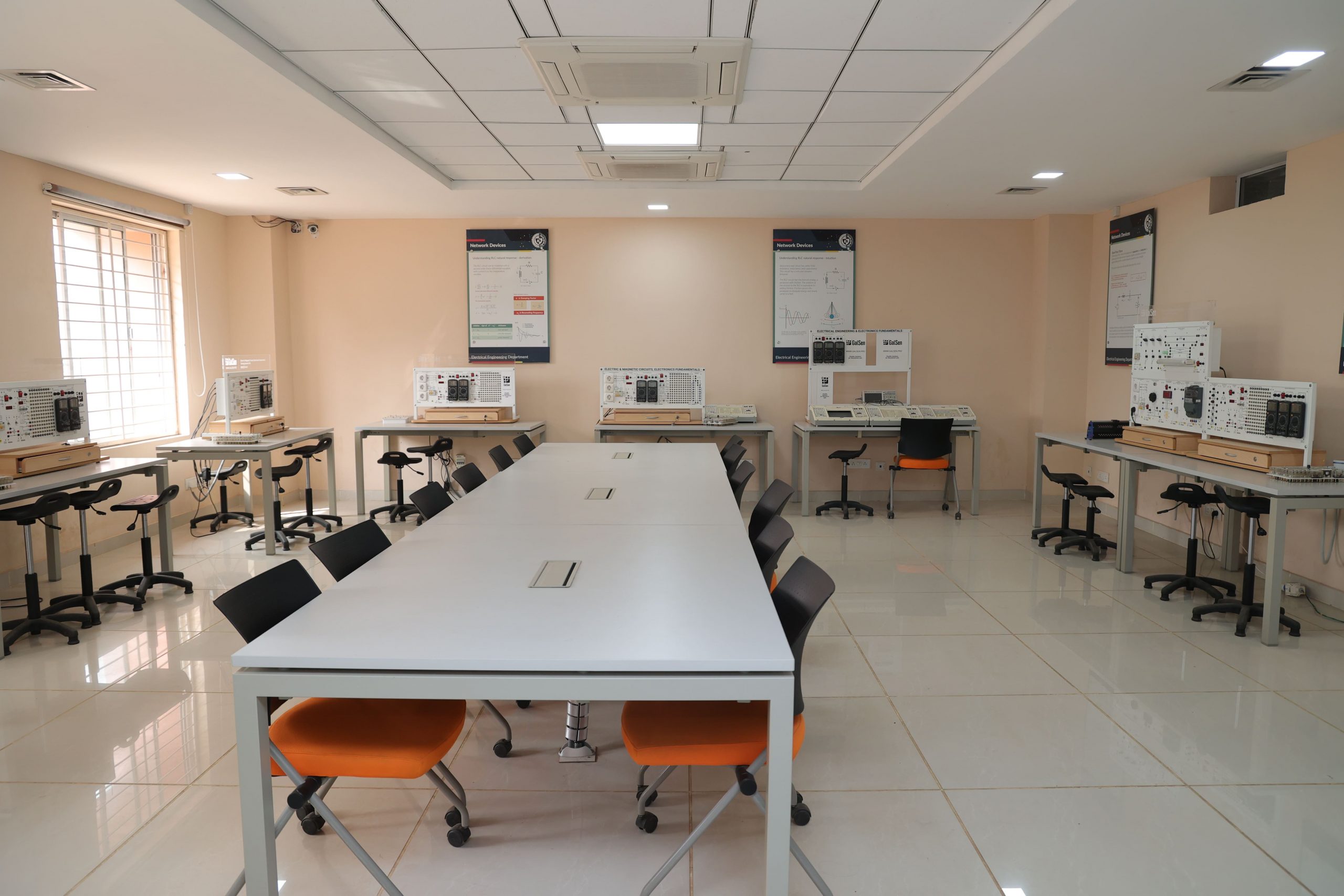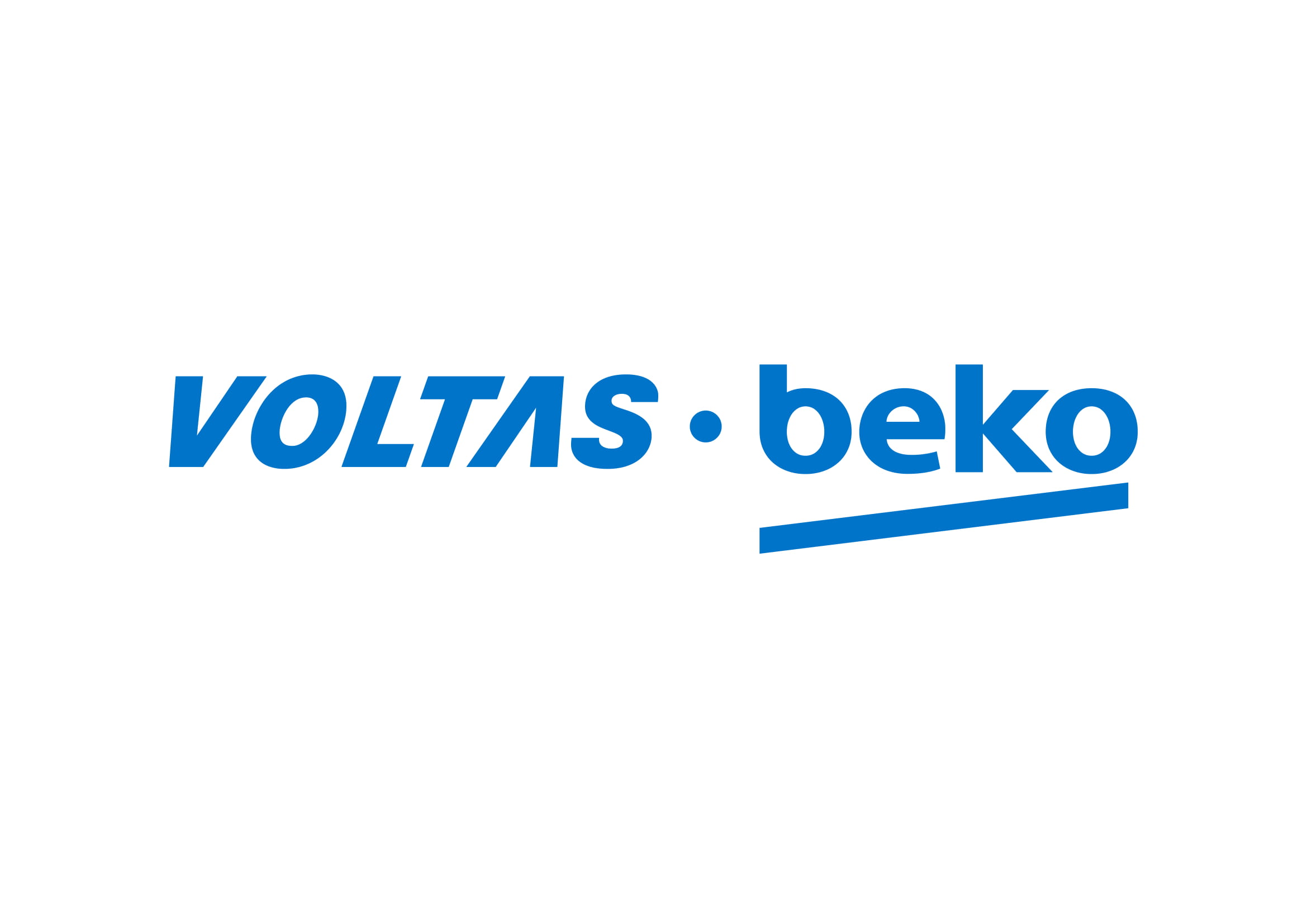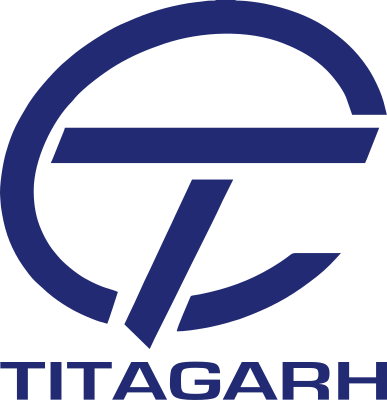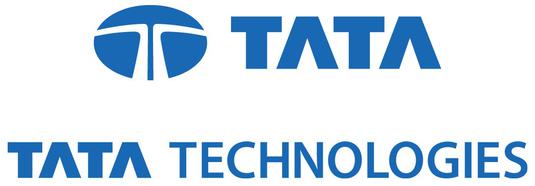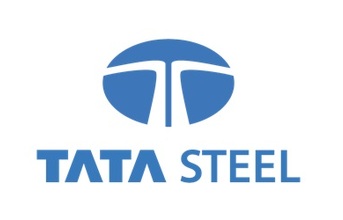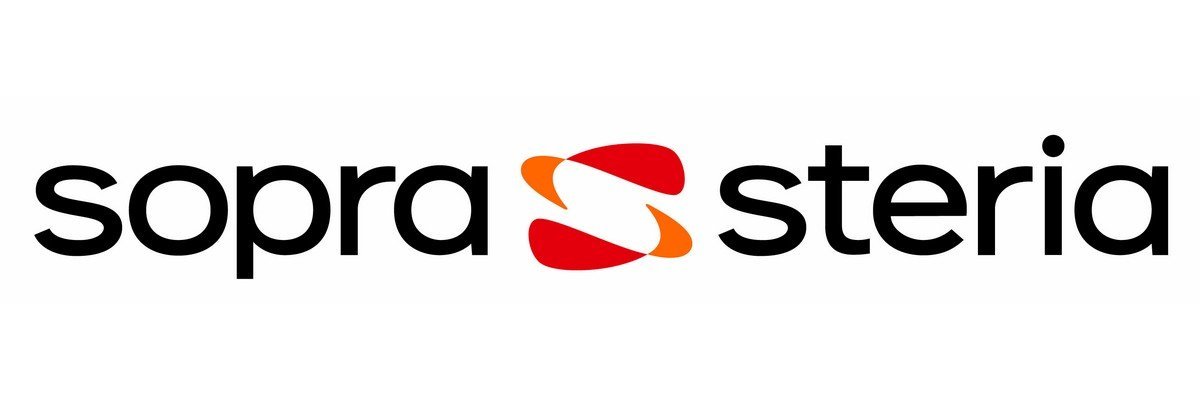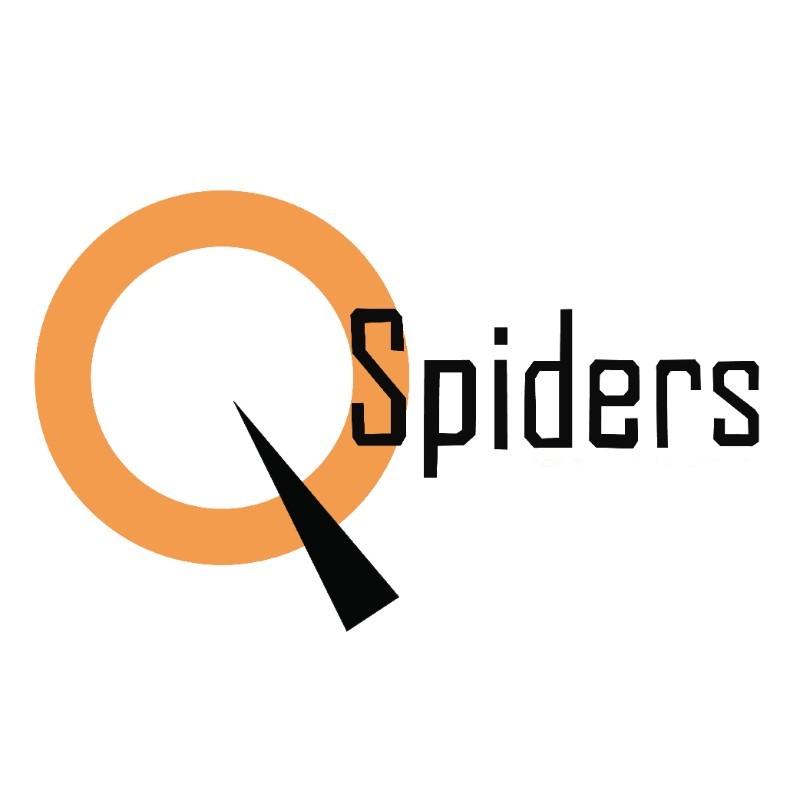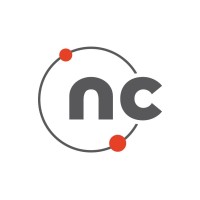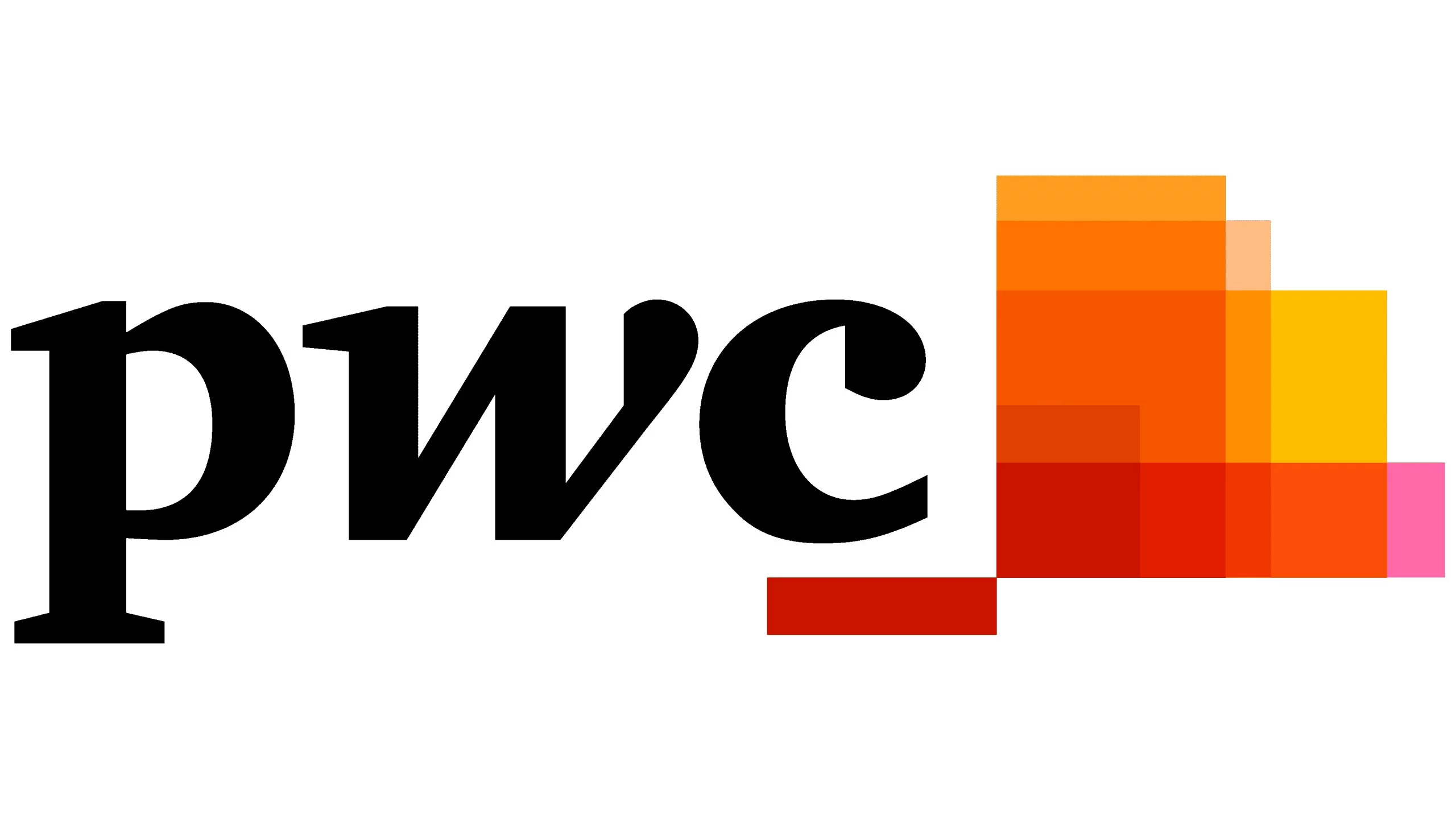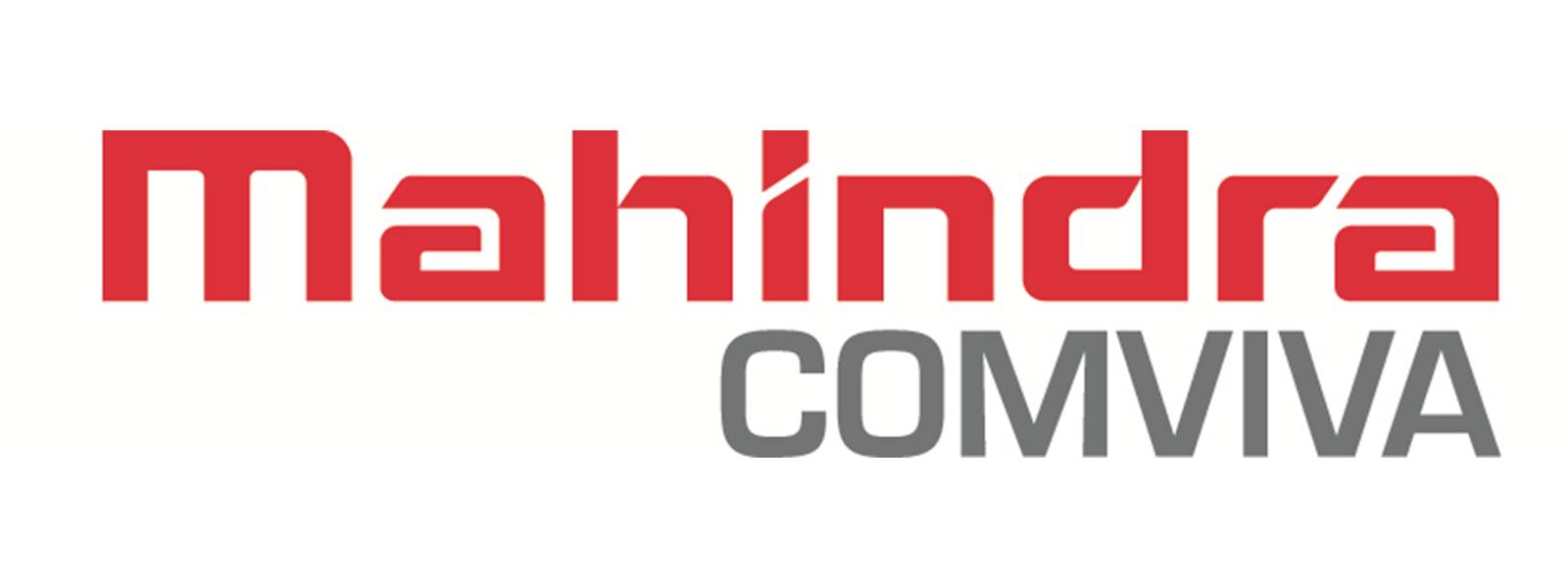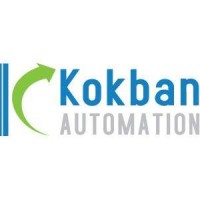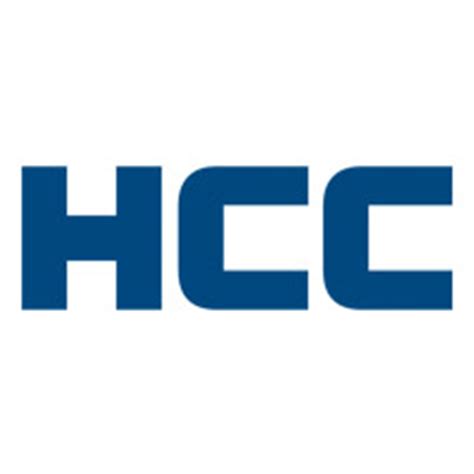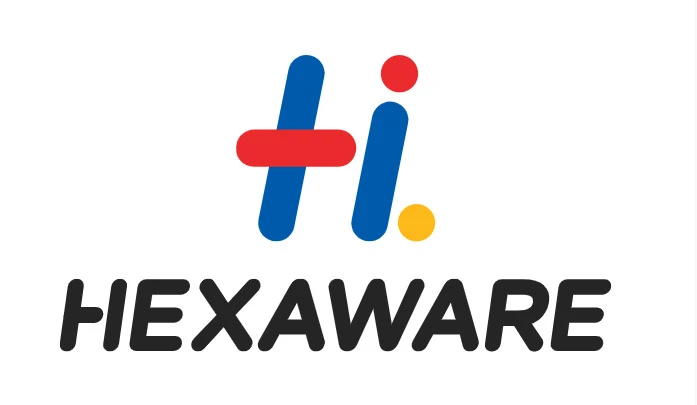The Department of Electrical Engineering was introduced with a vision to produce competent engineers for the industry and responsible citizens for our nation. While maintaining its traditional strengths in classical engineering disciplines, the department updates the curriculum constantly to match industry requirements which is what makes CGU rank among the best electrical engineering universities.
At its heart, this program is about teaching students solid fundamentals and challenging them to problem-solve independently and integrate interdisciplinary technologies throughout Electrical Engineering.
The department offers a variety of elective subjects that mainly focus on crucial domains like Smart Grids, Electric Drives and Traction, Renewable Energy, Electric vehicles, Artificial Intelligence and IoTs” which makes it the place to be for any student wanting to pursue B.tech in electrical engineering.
Also, with all program students as its members, the department has the pleasure of running the Society of Electrical Engineers (SoEE). This society becomes an interface between students and peers from other institutions, eminent academicians, industry experts, and professional organisations. Through fostering community, students can look forward to enhancing their professional development.
CGU Electrical Engineering College is known for its long-standing mentoring program. Faculty imparts individual attention and mentorship, honing and moulding young minds into proficient technocrats and responsible engineers. The department’s devotion to maintaining an exceptional level of educational standards and quality assurance is proven by its accreditation from prestigious entities such as the National Board of Accreditation (NBA) and the National Assessment and Accreditation Council (NAAC).
The use of cutting-edge simulation software like MATLAB, SIMULINK, LABVIEW, PSCAD – EMTDC, ETAP, PSPICE, etc., further enhances learning in specialized fields, helping students gain hands-on experience and conduct research. With state-of-the-art facilities and a focus on innovation and education, our lab environments provide the perfect setting to stimulate scientific advancement. Experimental and theoretical data can be accurately measured, characterised, and synthesised to nourish research efforts.
World-class department labs and facilities have engraved CGU among the best electrical engineering colleges in India, including:
- Power System Lab
- Network Lab
- Control System Lab
- Instrumentation Lab
- Electrical Workshop
- Project Lab
- Computer Lab
- Measurement Lab
- Microprocessor Lab
- Analog Electronics Lab
- Power Electronics Lab
- Machine Lab
- Basic Electrical Lab
Bachelor in Electrical Engineering program opens the avenue to infinite opportunities. You get to explore concepts like embedded systems, robotics, electronic devices, circuits, and systems, energy distribution, motors/generators, power electronics, energy marketing, Microwave/RF/photonic devices and systems, signal processing and embedded software. The only branch of engineering which touches very tiny microprocessors to dynamic world of supercomputers.
What sets CGU apart among the best electrical engineering colleges ‘ is social development and academic excellence at the core of the department’s mission to groom responsible engineers for the nation. Their pioneering vision for Electrical Engineering education is focused on closing the gap between theoretical knowledge and practical expertise. To meet the ever-changing industry demands, our department is always updating our curriculum.
Remarkably, the division has cultivated robust alliances with top companies to amplify practical expertise and advancement. Partnerships with organizations like TTL Pune, Schneider Electric, SEW Drives, Bosch Rexroth, Quanser Advance Control & Siemens Germany have produced consultancy ventures and opened doors to core sector internships and job opportunities. Consistent industry visits to establishments such as OPTCL, SLDC, OHPC, and NTPC among others provide exposure to real-world operations of Electrical Engineering in India.
Additionally, the department motivates its students to engage in national/international contests like the Smart India Hackathon & India Skill Competition where they consistently bag accolades and win prizes. This zest for competition and inventiveness introduces a dynamic energy into the department.
Going beyond conventional academic practices, b.tech Electrical Engineering works diligently to cultivate an environment conducive to top-tier research. Its state-of-the-art facilities offer abundant opportunities for both professors and students to indulge in exploration that captures attention on a national and global scale. Playing a vibrant role in hosting international and domestic conferences, sometimes collaborating with esteemed organisations such as IEEE and Springer.
The Department of B.tech Electrical Engineering’s utmost objective is:
- To provide a solid conceptual foundation in Electrical Engineering core principles
- To nurture skills and knowledge in Electrical Engineering disciplines, along with ethics and excellence towards advanced learning, research and successful employment
- Instil life-long learning attitude, foster innovation and creativity for tackling 21st-century challenges
- Foster positive attitudes, ethical values, teamwork, and leadership skills essential for professional and ethical conduct within the organisation and in society
Our Key Highlights:
- The department’s faculty is highly qualified and has extensive teaching experience
- Excellent teaching methodology with a focus on interactive learning via AV mediums
- Well-equipped state-of-the-art labs for hands-on learning experience
- A well-balanced curriculum with a blend of research and industry-oriented courses
- Regular workshops, seminars, and frequent guest lectures for tech-trend insights
- Projects and Industrial visits for quality exposure and hands-on experience of professional takes
Specific outcome after completion of Electrical and Electronics Engineering Program:
- Gain invaluable lessons to understand the principles and workings of electrical components, circuits and systems of power generation, transmission, and distribution sectors. Students can assess the power management, auditing, crisis and saving aspects.
- Build a strong foundation of power system fundamentals, understanding the structure and development methodologies of electrical systems.
- Develop professional skills and knowledge of electrical system modelling and design of small and large systems.
- Be familiarise with and practical competence in electrical circuits, electronic circuits and programming platforms through practice and experimentation
- Strengthen mathematical concepts to solve computation tasks, and model real-world problems using appropriate engineering tools and suitable algorithms.
- Apply computing and research ability to identify research gaps and generate new ideas and innovations.
Fundamentally speaking, the existence of the Department of Electrical Engineering represents its unwavering dedication to nurturing engineering prodigies whilst staying attuned to ever-evolving technological advances impacting industry norms. The perks and learning that CGU has to offer make it one of the best colleges for electrical engineering. By focusing on core principles, hands-on experiences, and implementing a robust mentorship system, it has consistently yielded accomplished engineers who become responsible members of society.
Recognition from esteemed governing bodies alongside partnerships with industry behemoths highlights its commitment towards offering world-class education coupled with groundbreaking research endeavours. Additionally, achievements by our students during competitions as well as scientific inquiries contribute to our mounting reputation as the best college for electrical engineering both domestically and internationally. The Department of Electrical Engineering stands not merely as an educational institute but rather as a fountainhead for innovative thinking, know-how dissemination maintaining excellence within the realm of electrical engineering.
